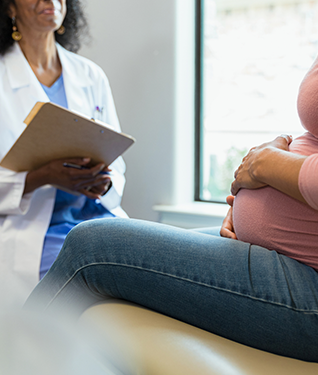Best time for a flu shot: Considerations during the flu season
Like other countries in the Northern Hemisphere, the United States has a flu season that usually runs from October through April. The Centers for Disease Control and Prevention (CDC) recommends that all people aged 6 months and older should prepare for the US flu season by getting a flu shot by the end of October, with few exceptions. But why do they specify that kind of timing for a flu shot?
The reason lies in when flu season typically occurs—and in how flu shots work.
Because the timing of influenza circulating through a community may change each year, the ideal time to get vaccinated can change, too. Nevertheless, even though the flu season sometimes deviates from its usual patterns, flu cases usually begin rising in the fall months, peak between December and February and taper off around April or even May.
So unless flu cases are at unusual levels at unexpected times in the season, getting a flu vaccine before the end of October makes sense. But even if you delay getting a flu shot past October, getting a flu shot before gathering with family and friends for the holidays in November and December may help protect you and others from spreading or catching the flu.
But how long does it take for the flu shot to be fully effective, once you’ve been vaccinated? And how long after the flu shot are you protected?
When does a flu shot start to work? How long does a flu shot protect you?
It usually takes about two weeks for your body to build up enough antibodies to provide protection from the flu. How well a flu vaccine works will depend on a few things, including:
- The age and health of the person getting it
- The kinds of flu viruses in circulation
- The match between the flu viruses used to create the vaccine and the circulating viruses that season
When there is a good match between the circulating flu viruses and the viruses used in flu vaccines, flu vaccines will provide greater protection against the flu and serious complications. In the 2022-2023 flu season, preliminary estimates show that people who received a flu vaccine were 40% to 70% less likely to require hospitalization due to the flu or its complications. Even if flu vaccines don't match the flu viruses causing illness, they can still offer protection against the flu.
Flu vaccines generally help provide protection against the flu and its potentially serious complications, such as hospitalization and even death, for the duration of the current flu season, although your body’s immunity from a flu vaccination or a flu infection decreases over time. In a study of flu vaccines between the 2011-2012 and 2014-2015 flu seasons, researchers found that flu vaccine immunity against influenza A(H1N1) decreased between 6% to 11% a month. Because vaccine immunity wanes over time, the CDC does not typically recommend getting a flu vaccine in July or August, well before the flu season usually begins.
Best time for a flu shot: Children, people aged 65 years and older, pregnant people
For most people (particularly adults aged 65 years and older), it’s best to not get a flu shot during July or August. It’s most ideal to get your seasonal flu vaccine by the end of October. If you don’t get it by that time, though, it’s still worth getting a flu shot before the end of the flu season, as long as flu is in circulation.
Although getting a flu vaccine during the summer months of July and August is not recommended for most, there are special recommendations about timing a flu shot for certain groups of people.
These include children aged from 6 months to 8 years, if they haven’t had a flu vaccine before or have previously only received one vaccine; these children should receive a flu shot as soon as flu vaccines become available. Also, if kids have health exams during July or August and are unlikely to see a doctor again once school begins, getting them vaccinated during a summer healthcare visit may be considered.
Like children, pregnant people are at high risk for complications from the flu; getting a flu shot can protect them against the flu and flu-related hospitalizations.
Also, because pregnant people pass on antibodies to their developing child, a flu shot in a pregnant person can protect babies from the flu even while they’re in the womb—and also for several months after they are born. This is an important benefit, given that babies cannot receive a flu shot until they turn 6 months old.
As with younger children, recommendations on pregnancy flu shot timing vary, depending on the stage of pregnancy. Pregnant people in their third trimester can consider receiving a flu shot in July and August. However, pregnant people who are in their first or second trimester, as well as most adults, should avoid getting a flu vaccine in July and August unless they may not be able to get vaccinated later. Like other adults, they should get the flu vaccine in September or October.
Figuring out how to find the best time for a flu shot in your schedule may seem like a challenge, but there are ways to make it quick and convenient. If you have an exam scheduled with your doctor, you can ask about getting a flu shot during your visit. If you’re unable to get an appointment with a doctor or clinic to get a flu shot, many local health departments, pharmacies, schools and workplaces offer vaccinations.

